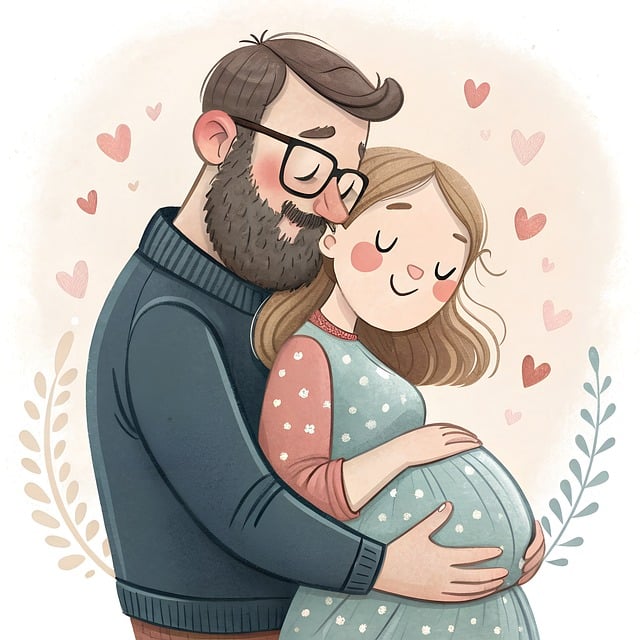Twelve years ago, I was blissfully expecting at 24 weeks pregnant, completely unaware that I would soon face an unimaginable journey. Just days later, I found myself in the hospital, enduring two grueling weeks of bed rest, haunted by the incessant beeping of the fetal heart rate monitor. My heart raced with fear for my unborn child. My son, Oliver, arrived at 26 weeks, weighing a mere pound. In the NICU, he wore preemie diapers that were comically oversized, and I spent a week by his side, surrounded by the relentless sounds of machines—noises that will echo in my memory forever. Tragically, Oliver passed away in my arms a week after his birth, marking the beginning of my struggle with post-traumatic stress disorder (PTSD).
After a period of mourning, my husband and I decided to try for another child. We faced several miscarriages, each one heartbreaking in its own way, yet distinct from the loss of Oliver. Eventually, I was blessed with another child, a healthy daughter, whom I affectionately call my “Miracle Baby.” However, the day I brought her home, I realized just how anxious I felt without the constant support of nurses. I feared that she might stop breathing. Ten years later, she’s thriving, but I’ll admit to still checking on her in the middle of the night—and I might even keep doing that when she heads off to college.
October is Pregnancy and Infant Loss Awareness Month, and through my work as a prenatal genetic counselor and from my friends’ and family’s experiences, I know I’m not alone in facing such loss. For those who have experienced a miscarriage or the loss of an infant, my heart goes out to you.
The Stages of Grief
Studies affirm that women who have endured a pregnancy or infant loss undergo similar stages of grief as anyone grieving a loved one. Some may not comprehend the profound sadness that follows a miscarriage, but for those of us who have been through it, the moment that pregnancy test turns positive, we begin planning everything—from maternity leave to nursery decor and even our child’s future education.
The feelings that follow a loss can be overwhelming and multifaceted. We may feel numb or experience a whirlwind of emotions such as sadness, anger, and helplessness. There may also be a sense of betrayal by our bodies, questioning why we couldn’t carry to term, or guilt over the fear that we may have done something wrong. And let’s not even get started on how, after experiencing loss, it seems like every social media feed is filled with happy, glowing pregnant women and baby advertisements!
Vulnerability in Future Pregnancies
Women with prior losses are particularly vulnerable in future pregnancies. Grief is deeply personal, and everyone responds differently to stress and loss. However, research indicates that women who have experienced pregnancy loss are at a heightened risk for issues like depression, anxiety, and excessive worry in subsequent pregnancies. The fear of another loss looms large, and we often grapple with guilt when we find moments of joy.
Mental Health Considerations
Regarding mental health, studies show that women who have faced pregnancy or perinatal loss are significantly more likely to develop depression and PTSD compared to those who haven’t. Alarmingly, many women do not receive the treatment they need. Depression during pregnancy can lead to complications like miscarriage, preterm labor, and even postpartum mood disorders. Similarly, PTSD can increase the risk of various pregnancy complications.
For more insights into these challenges, consider checking out the article on pregnancy-related depression at this link or explore stress management during pregnancy here.
Healthy Coping Mechanisms
It’s crucial to seek healthy ways to cope. A supportive healthcare team can refer you to therapists who specialize in helping women navigate pregnancy loss. The sooner you reach out for help, the better. Sometimes medication is necessary, but many find that techniques like breathing exercises, meditation, or prenatal yoga are incredibly beneficial. Each treatment plan should be tailored to your needs.
Recognizing Signs of Depression
Recognizing the signs of depression is essential. Everyone’s experience is unique, and feelings can change over time. A bad day here and there is normal, but persistent feelings of hopelessness or disconnection indicate a need for support.
Finding Compassionate Care
Finding a compassionate healthcare provider is vital for your next pregnancy. My OB team allowed me to express my fears and shared research that validated my feelings—moments for which I will always be grateful. Some practices even offer quick ultrasounds to ease the anxiety of expectant mothers.
I hope this reflection reassures you that you’re not alone in your feelings of grief and anxiety. Build a support system, be gentle with yourself, and maybe treat yourself to some chocolate. Life may never return to how it was, but remember there is hope and a path forward.
Summary
This blog discusses the author’s journey through the heartbreak of infant loss, the emotional toll it takes, and the importance of mental health support during subsequent pregnancies. It emphasizes that feelings of grief and anxiety are common, and seeking help is crucial for healing. The piece encourages readers to create a supportive network and reminds them they are not alone in their struggles.

